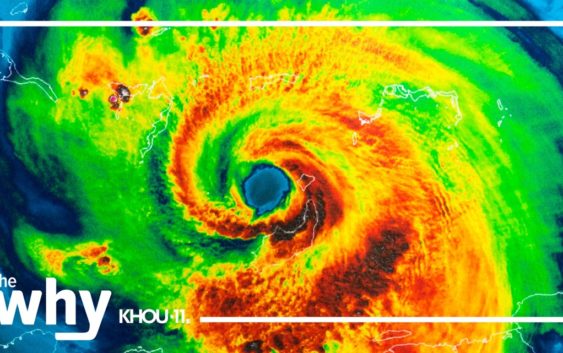- Artists transform hurricane aftermath into hoop-inspired masterpieces at Charlotte exhibit
- NC's cost for Hurricane Helene damage is nearly $60 billion, state says
- State to develop drone program to better respond to disasters like Helene, Florence
- South Carolina residents face deadline to get storm debris out to the curb after Hurricane Helene
- SCDOT to pick up Hurricane Helene debris for a final day in South Carolina
Why could this year’s quiet Atlantic hurricane season soon change?

So far things have been quiet in the Atlantic basin, but it could ramp up.
HOUSTON — Heading into this hurricane season experts predicted there would be above-average activity.
And even though it has been quiet just a couple of weeks ago the National Oceanic and Atmospheric Administration and Colorado State University were still saying we should expect an above-normal hurricane season in the Atlantic. If that prediction holds true it would be the seventh consecutive above-normal hurricane season.
There hasn’t been a named storm in the Atlantic basin since Colin in early July. But now the National Hurricane Center is indicating that a sudden uptick in activity is possible.
Peak hurricane season
The historic peak of hurricane season is mid-September, but things usually start to heat up around the end of August and keep on kicking until mid-October.
NOAA forecasters predict there will be 14 to 20 named storms this season with six to 10 hurricanes. But all it takes is one storm in the right place and the right time to do a lot of damage.
1992 Hurricane Andrew hit
In 1992, there were only seven named storms, a very quiet hurricane season. The first hurricane to hit that year was Andrew, a Category 5 storm that tore through South Florida. A reminder that even quiet years can leave devastation in their wake.